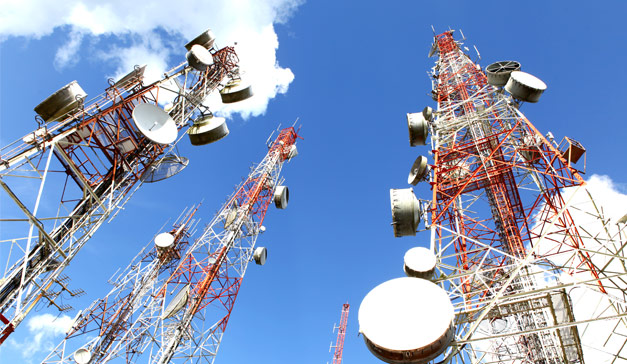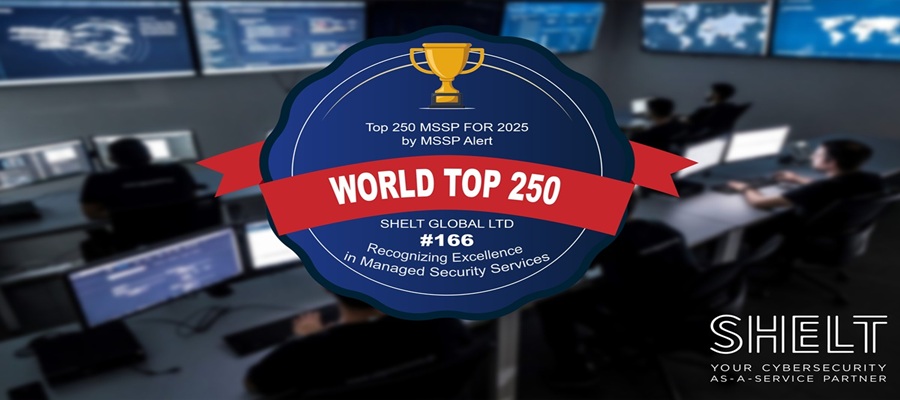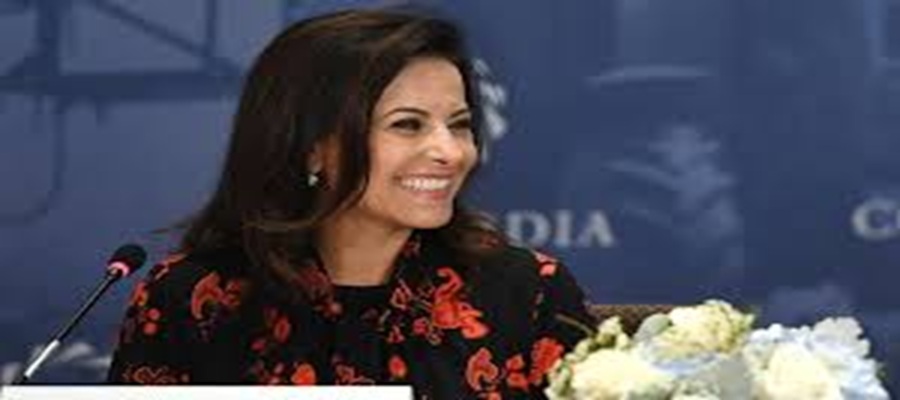Telecom
ALTON Warns of Imminent Telecom Blackout In 11 States

Association of Licensed Telecommunications Operators of Nigeria (ALTON) has expressed its concern about the shutting down of telecommunications facilities in Kogi state as a result of disputes arising from unusual taxes and levies demanded by the Kogi state government through Its Kogi State Internal Revenue Service (KIRS).

According to a statement issued yesterday by Engr. Gbenga Adebayo , ALTON chairman, and Gbolahan Awonuga, head of operations, this issue is likely to lead to a total communications blackout in the entire Kogi state, parts of Abuja the Federal Capital Territory and possible impact on service availability in some parts of the following States: Nassarawa, Benue, Enugu, Anambra, Edo, Ondo, Ekiti, Kwara, Niger States.
ALTON called on President Muhammadu Buhari and the Vice President Yemi Osinbajo, who are driving the Presidential Enable Business Council on Ease of doing business in Nigeria to prevail on the Kogi state governor, Yahaya Bello to reign in on the matter to prevent a total blackout in communications services in Kogi, FCT and other nine states of the Federation which are now under threat due to what is happening to our network in Kogi State.
“This situation arises as a number of critical telecommunications sites belonging to our members have been closed and sealed up by Kogi State Government in an attempt to increase its Internally Generated Revenue (IGR) Collection.
“This action followed an ex-parte court order obtained by the KIRS over unsubstantiated allegations that our members are in default of tax payments to the state government (which is not the truth) and access to these critical telecom sites has been denied.
“As result of these actions by the state government, our members are unable to refuel power generators in these sites, a situation which has led to outage of over 70 sites including hub sites across parts of Kogi State. Now, with likely impact on Nine States surrounding Kogi (namely:- Nasarawa, Benue, Enugu, Anambra, Edo, Ondo, Ekiti, Kwara, Niger States. These are States sharing borders with Kogi State), and Abuja the FCT inclusive,” the statement said.
ALTON leaders also stressed that this indiscriminate action has the potential of further leading to a total telecommunications outage in Kogi State with neighboring states and parts of the Federal Capital Territory adversely impacted.
“To the best of our knowledge, our members have settled all statutory levies and taxes due to the Kogi State Government and have taken necessary steps to comply with local laws that govern business activities within Kogi State,” it said.
The association said some of the charges described are: Annual Right of Way (ROW) renewal, Social Services contribution, Employee Economic Development Levy, Mast site premises renewal and Fire service yearly renewal.
Others are from the Kogi State Environmental Protection Board on, which insist on; Payment of environmental levy, Failure to submit an environmental impact assessment report; Failure to register industry; Failure to submit environmental audit report every 2 years; Storage of petroleum products and radioactive materials without written permission from KSEPB; Failure to comply with setbacks to roads, power lines and rivers/streams; and Dumping of toxic or hazardous substances or hazardous substances or harmful waste without KSEPB approval.
“ALTON is worried that the action by KIRS will jeopardize communication services provided by us to security agencies such as the Nigeria Police Force, the Armed Forces in addition and to other emergency and social services in Kogi and other neighboring states. This will include affecting communication links to Bank automatic teller machines (ATM) across those states.
“The outage currently being experienced is already affecting the ability of our members to provide uninterrupted service delivery to Commercial Banks, Central Bank of Nigeria, the Nigerian National Petroleum Corporation and other critical agencies of government in the aforementioned locations.
“The Association noted that the office of the National Security Adviser to Mr. President has in the past communicated to the 36 state governments on the fact that telecommunications sites are Critical National Infrastructure (CNI). They are critical socio-economic and security infrastructure. The agency had strongly advised against sealing them as such actions would have negative implications on national security.” The statement said.
State Governments were encouraged to explore other means of resolving tax related disputes rather than sealing telecommunications sites.
ALTON said further “Our members have also made several overtures to Kogi State Internal Revenue Service KIRS in the past months in a bid to resolve the disputed issues amicably but the agency has remained adamant.
“Rather than resort to the Tax Arbitration Tribunal for intervention as is expected of a government agency, KIRS has resorted to subtle intimidation by getting the sites shutdown in a bid to coerce our members into accepting the illegal taxes and levies,” the statement added.
Telecom
Glo Unveils Immersive Gaming Experience, Travel Saga

With the introduction of Travel Saga, a premium, fast-paced gaming experience that is currently live and accessible to customers on its network, Globacom has lifted the bar for mobile entertainment in the country.

Travel Saga is a story-driven, intricately connected role-playing game designed to provide the thrill, complexity, and competitive intensity of some of the most well-known action games in the world.
The game, which has been painstakingly optimized for mobile devices, redefines mobile gaming as a full-fledged digital battlefield by translating a console-grade experience onto data-enabled handsets.
Fundamentally, Travel Saga takes users on quick virtual journeys against recognizable international landscapes. In a dynamic, ever-evolving gaming environment, players are thrown into furious missions, fierce fights, and ever-expanding tales where talent, strategy, and endurance determine who rises through the ranks to become a true war hero.
In addition to the excitement of fighting, users are encouraged to go to various locations, take part in thrilling challenges, and participate in intense competition for in-app rewards like points and victory badges. With each encounter and accomplishment, the immersion increases with each level, maintaining momentum and excitement.
Flexible subscription plans with one-time or auto-renewal choices are available to subscribers for the service, which costs ₦100 per day and ₦250 per week. By dialing *70021#, customers can quickly subscribe and gain instant access to the action.
With Travel Saga, Glo reaffirms its dedication to innovation and high-end digital experiences, making top-notch gaming easily accessible to its customers. The game offers uninterrupted action, adventure, and competition, all smoothly supported by the Glo network.
Telecom
SHELT Named in Prestigious 2025 MSSP 250 List for Cybersecurity Excellence

SHELT, a leading cybersecurity-as-a-service provider, has earned inclusion in the 2025 MSSP 250, the annual ranking of the world’s top 250 Managed Security Service Providers (MSSPs) by MSSP Alert, a CyberRisk Alliance publication.

SHELT
The list evaluates firms on business performance, service breadth, and industry impact, spotlighting those excelling in growth, operational excellence, and advanced managed security amid rising cyber threats. Selection criteria include annual recurring revenue, profitability, workforce expansion, business growth, and the depth of managed security offerings.
SHELT’s recognition underscores its investments in scalable security operations, threat intelligence, and tailored managed services across multiple regions, enabling clients to navigate complex risk landscapes effectively.
“Being recognised in the MSSP 250 is a meaningful milestone for our team,” stated Youssef Abillama, CEO of SHELT. “It validates our focus on building practical, resilient security services that help organisations manage risk and respond effectively to today’s evolving cyber threats.”
The company hailed the honour as testament to its teams’ dedication and expertise worldwide, reaffirming commitment to enhancing capabilities and delivering trusted cybersecurity solutions.
Telecom
Meta Names Ex-Trump Adviser Dina Powell McCormick as President

Meta Platforms, owner of Facebook, has appointed Dina Powell McCormick, a former adviser to President Donald Trump, as its new president and vice chairman, bolstering its leadership amid aggressive AI and infrastructure expansion.

Dina Powell McCormick
The announcement, made on Monday, positions Powell McCormick – who recently stepped down from Meta’s board after eight months – to guide overall strategy, including multi-billion-dollar investments in data centres and global partnerships.
A Goldman Sachs veteran with 16 years in senior roles and prior stints as deputy national security adviser under Trump and in the Bush administration, she brings deep finance and international ties to the role.
Meta CEO Mark Zuckerberg hailed her as “uniquely qualified” for the company’s next growth phase, while President Trump praised the move on Truth Social as a “fantastic choice”.
The hire signals Meta’s efforts to strengthen White House relations, following recent dinners with Trump and U.S. investment pledges worth hundreds of billions

 General News3 days ago
General News3 days agoPalmPay, Premier Cool to Reward 10,000 Nigerians with ₦100m in “10k for 10k Campaign”

 E-Financial3 days ago
E-Financial3 days agoEcobank Joins Trillion-naira Club for the First Time in 20 Years

 E-Business3 days ago
E-Business3 days agoKaspersky Warns Telecom Threats from 2025 will Carry into 2026 as New Technology Adds New Risk

 E-Financial2 days ago
E-Financial2 days agoAngst as FG Demands 7.5 Percent VAT on Mobile Bank Transfers, USSD

 E-Business3 days ago
E-Business3 days agoNigerian Terra Industries Secures $11.8m for Expansion

 Telecom3 days ago
Telecom3 days agoSHELT Named in Prestigious 2025 MSSP 250 List for Cybersecurity Excellence

 News2 days ago
News2 days agoMoniepoint Launches Second Cohort of DreamDevs Initiative to Double Down on Africa’s Tech Talent Pipeline

 E-Financial2 days ago
E-Financial2 days agoNGX lists 3.156bn UBA shares, boosting capital to N513Bn



























